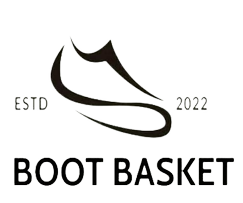Content
Accounting professionals will likely work in both the public and private sectors over the course of their careers. Auditing involves reviewing financial documents for accuracy and compliance with laws and regulations. A public accounting degree develops the investigative skills auditors need to perform their duties. For any business, spotting financial risks or errors is critical, which makes auditing an integral position.
Ongoing education is essential for maintaining efficiency and staying up-to-date with current laws and regulations affecting the profession. Moreover, Bookkeepers should have excellent communication skills, customer service aptitude, problem-solving capabilities, and a willingness to keep up with changing laws and regulations standards. We will also discuss the rewards and benefits of a career in public accounting so you can make the best decision for yourself. If all you need is help filing a relatively simple return, though, you may not need the full services of a CPA; a non-CPA tax preparer, or even do-it-yourself tax software, may be enough to get your taxes done.
CPA Requirements
Individuals can access growing opportunities to contribute beyond basic auditing and document preparation by furthering their knowledge and expertise. However, the rigorous qualifications of the profession also require specialization and commitment, both in terms of time and budget. Public accounting services can also provide customized solutions tailored to each business’s needs.
It won’t be wrong to say that no business can survive without maintaining the accounts. In response, regulators passed the Sarbanes Oxley Act of 2002 which largely bookkeeping for startups shapes the CPA-client relationships and auditing standards of today. Please review our privacy policy for more details or contact us at [email protected].
Remain organized at all times- Tips For Being A Successful Public Accountant
This option very much resembles a typical office job as the work of a private accountant is relatively stable, with very little to no travel (fixed work location) and regular hours. Among accounting professions—for those who intend to pursue a career in this field—the choice most commonly falls down to two of the most popular branches of accounting, known as public accounting and private accounting. State CPA associations also serve the community by providing information and resources about the CPA profession and welcome inquiries from students, business professionals and the public-at-large. Certified Public Accountants (CPAs) are licensed by the state Board of Accountancy in the state in which they choose to practice. Many accountants prepare financial statements for companies to use for stockholders, the IRS, creditors, and other stakeholders.
The global nature of the economy will continue to place a demand on accounting services and controls for corporations doing business outside the United States. Job prospects will be especially bright for public accountants with CPA licenses, advanced degrees and additional specialized certifications. Generally Accepted Accounting Principles (GAAP) are the rules that public accountants must comply with when preparing financial statements.
Public vs. Private Accounting: What They Are & Key Differences
A general accounting education allows you to broaden your skills across the industry, opening up more job opportunities. If you’re interested in pursuing a finance job but unsure of your ideal role, a general accounting degree can help you identify areas you find most appealing. These classes differ from typical accounting degree coursework by covering specific public accounting skills like conducting financial investigations and filing public accounting reports.
- According to EMSI, in 2021 there were 170,481 job postings for accountants and auditors with a bachelor’s degree and no CPA license.
- The knowledge of private accountants may be limited to the work they are responsible for.
- The downside to public accounting can be the long hours sometimes required to do the work, especially during tax season.
- Also prepares financial statements, develops corporate tax returns, and suggests improvements to internal controls.
- Private accountants work for specific companies and are an essential part of the success of any organization.
Unlike private accountants, public accountants have the option to obtain CPA certification, which involves passing a challenging exam in order to become licensed. A CPA, or certified public accountant, is a designation awarded to accounting professionals who have met specific education, examination and experience requirements. They must be able to identify discrepancies between actual financial data and the figures reported by the entity they are auditing or consulting for. In addition to being knowledgeable about accounting principles and practices, public accountants should also understand economic indicators, business law, risk management strategies, and various taxation laws. Besides tax advising and preparation, CPAs might specialize in auditing, bookkeeping, consulting, management or financial advising and planning, to name just a few.
Examples of Public Accounting Services
Additionally, they can provide insights into potential investments and offer customized solutions to achieve personal goals better. The main difference between a public accounting firm and a CPA firm is that public accounting firms usually have a more comprehensive range of clients. A general accounting firm https://www.apzomedia.com/bookkeeping-startups-perfect-way-boost-financial-planning/ may work for small businesses, local governments, nonprofits, or international corporations. Many public accounting firms offer various services, including business consulting, tax preparation, and audit services. A public accounting firm (PAF) must hire certified public accountants and be GAAP compliant.
What is public accounting vs industry?
Industry accounting is a type of private accounting where one works in the accounting department for a specific company. Public accounting, on the other hand, is when you work for a firm that performs services for a client. These services may be audit, tax or advisory.



